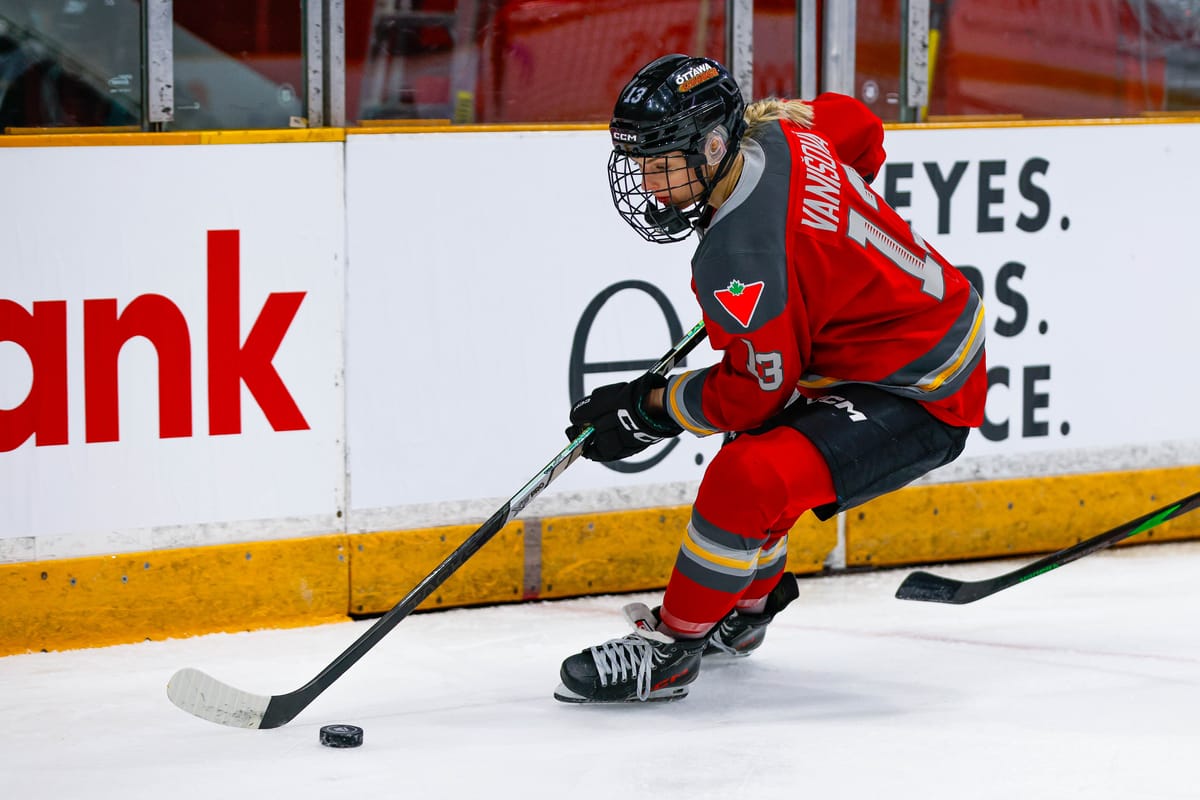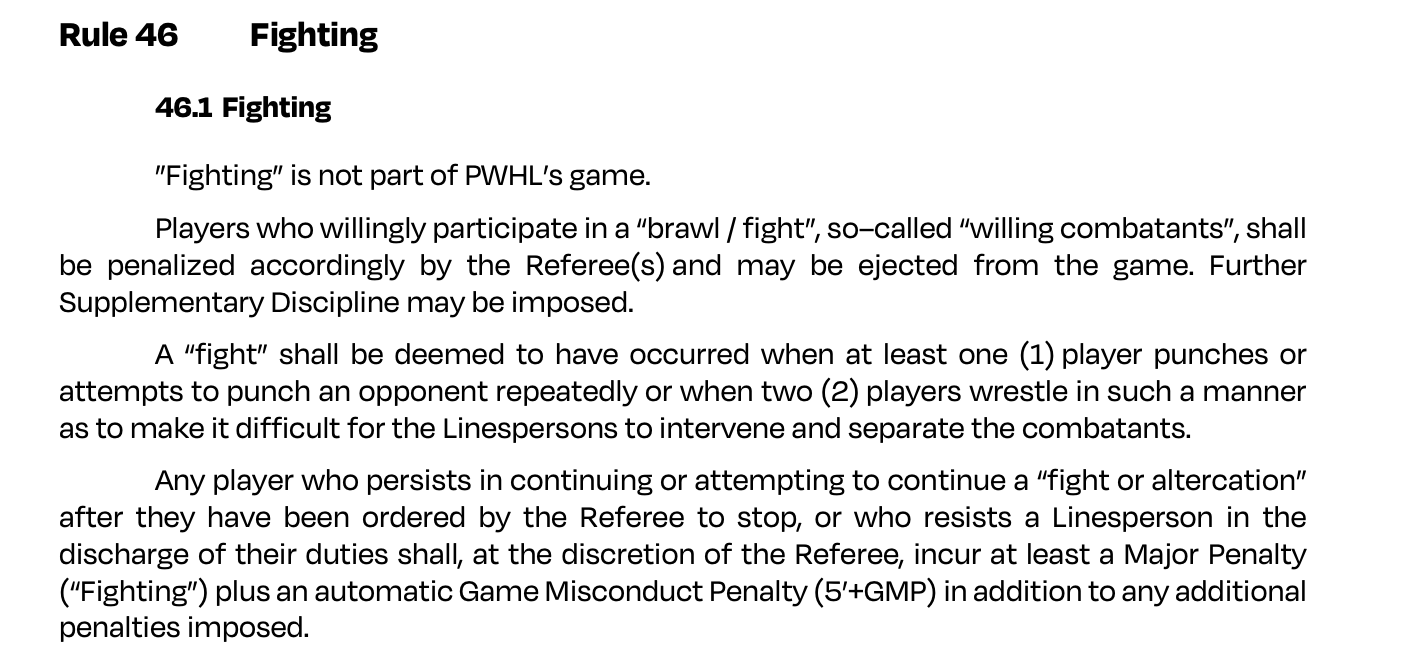PWHL Fight Club: Breaking Down Jill Saulnier, Tereza Vanišová's Tussle
Forgive me for breaking the first rule of Fight Club, but we need to discuss the Saulnier-Vanišová tussle.

After countless scrums over the PWHL’s 137-game history, the first legitimate fight in league history finally broke out in last night’s game between the Boston Fleet and Ottawa Charge. Jill Saulnier and Tereza Vanišová were the combatants.
The first legitimate fight in the #PWHL. 🥊 @PWHL_Boston’s Jill Saulnier & @PWHL_Ottawa’s Tereza Vanišová square off. #PWHL@jill_saulnier @VanisovaTereza pic.twitter.com/L6fr5biVmv
— Melissa Burgess (@_MelissaBurgess) February 21, 2025
Sure, no gloves were thrown like you see in men's leagues, but I wouldn’t want to punch a metal cage with my bare hands either. But a fight is still the only way to describe a situation where it's just two players and numerous punches are intentionally thrown and connected
So what exactly happened? This kerfuffle all started when Saulnier took down Vanišová along the boards. A puck battle soon ensued, during which Saulnier took another small whack at Vanišová as she was getting up. Once she fully stood up, Vanišová, who is never one to shy away from this kind of thing, grabbed Saulnier’s stick out of her hands. That's when the pushing and shoving began, which soon morphed into full-blown haymakers. The whole sequence lasted about ten seconds from the time Vanišová stood to when the linespersons separated them. After lots of discussion, both players were assessed double minor penalties for roughing, beginning at 11:18 of the third period.
Here’s a look at what the PWHL rulebook says about fighting. Notice that there is no penalty type specified in the definition. However, in the penalty-type summary tables near the end of the book, an initial fighting penalty only appears in Table 5, which summarizes majors.

It later goes on to say that “the Referees are provided very wide latitude in penalties they may impose under this rule. This is done intentionally to enable them to differentiate between the obvious degrees of responsibility of the participants either for starting the 'fight or persisting in continuing the fight.' The discretion provided should be exercised rationally.”
Outside of the first sentence, this rule is lifted word-for-word from the NHL rulebook, which was one the PWHL used as a model. However, given that fighting is not a part of the PWHL like it is in the NHL, they need to remove the gray area for referees. Obvious fights like this will happen so infrequently that without a clear roadmap, it will never be called consistently, and that benefits no one. The rulebook should be amended so that it’s explicitly stated in the definition–not just through the summary tables–that fighting carries an automatic major, and that the referees should only use their discretion to determine whether or not to assess an instigator penalty too.
Beyond the four minutes of 4v4, this fight had a clear impact on last night’s game. Vanišová emerged from the box as a woman on a mission, and before long, she notched the first (unofficial) Gordie Howe hat trick in PWHL history (a fight, an assist, and a goal). The Fleet ultimately won in overtime, but after trailing for most of the game, the fact that the Charge managed to rally and get a point says a lot about the impact wild moments like this can have.





Comments ()